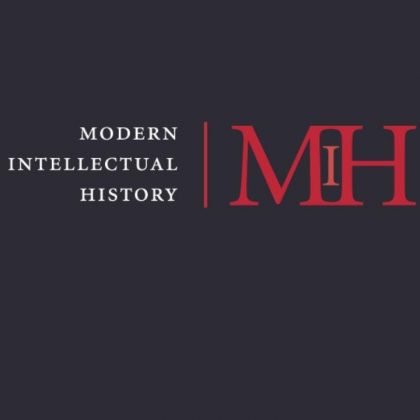Winners of the UCB 2023: ‘Development of resources for using Julia programming language for scientific computing’
The University Collaboration Budget (UCB) funds initiatives that involve direct collaboration between the University and Cambridge University Press (Academic). Winning initiatives strive to further our shared aims, such as research excellence and integrity, scholarly communication and challenging elitism. UCB initiatives are wide-ranging – from developing free online teaching resources for learning scientific computing, to hosting a major academic event to celebrate the anniversaries of Mahatma Gandhi’s birth and visit to Cambridge.
Julia is a high-level, general-purpose dynamic programming language. Its features are well suited for numerical analysis and computational science. In 2019, the UCB supported the development of free online teaching resources to demonstrate Julia’s potential benefits for undergraduate and graduate students (a full report is available here).
Applicants Stephen Eglen and Roger Astley now plan to expand these resources and evaluate the utility of online platforms such as CoCalc in running Julia. We spoke to Stephen and Roger to find out more.
Tell us about your initiative itself – what activities do you plan to carry out?
In this initiative, we would like to build on the 2019 initiative in several ways:
Provide further open access introductory material for learning Julia. This will allow those less familiar with programming to learn about Julia’s core features.
Evaluate the use of interactive online environments. This will involve running the code within a web browser, rather than downloading the code and running it locally on a computer. We intend to explore the utility of the CoCalc environment for this work, in addition to Google CoLab and mybinder.org. By exploring the different environments and testing how well they fit with our workflow our needs, we hope to create a set of pros and cons of each online framework. We plan to produce a small technical report describing our findings, and to make this freely available online in preprint form.
Investigate ways of making the material robust to changes in compute infrastructure. Possibilities include automatic testing frameworks (to at least detect when things break) and conversion of notebooks into simpler (e.g. ASCII) formats that should provide a longer degree of permanence. A recent initiative from Journal of Fluid Mechanics for online notebooks could provide additional case studies for longevity testing. We will explore the use of unix tools, such as pandoc and jupytext, for converting our notebooks into alternative formats.
Explore the possibility of developing some of the Julia learning resources into a format suitable for publication as a book. We would endeavour to make this book freely available online, with the physical copy made available to complement the online resources.
How will your initiative help achieve the University and Cambridge University Press (Academic)’s shared aims?
Roger Astley is already working on similar projects where online resources are hosted on CoCalc, thanks to an existing agreement between the Press and CoCalc. We will work closely on evaluating the interactive online environments, on production of the technical report and on exploring the use of alternative formats. These are areas that we both find interesting as a future direction for scholarly communication in scientific domains. We imagine the results of our evaluation will generate significant discussions between the University and the Press as to viable, sustainable formats.
What impact do you expect your initiative to have? How will you measure your success?
We hope that the planned learning materials will make Julia accessible to students and researchers new to programming. The technical report and its conclusions will inform the broader discipline-wide discussion on the use of programming languages within interactive online environments, and the issue of longevity. The exact ‘shape’ of the book’s format is yet to be determined, however, we aim for this discussion to continue beyond the end of the UCB round.
For more information on Cambridge University Press’ collaboration with CoCalc, see An Introduction to JFM Notebooks. See the CODECHECK project for a related project by Stephen Eglen and Daniel Nüst.
Check the UCB’s Initiative Database for updates on this initiative’s progress. For more information on the UCB, please see our website.






